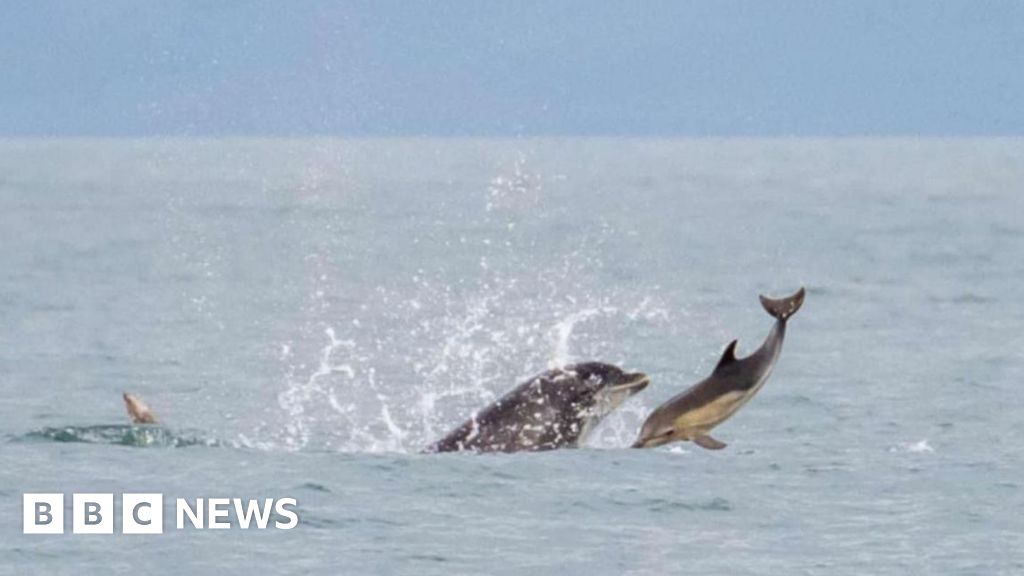Elin Alexander & Paul Pigott from BBC News reported on a tragic incident where a common dolphin calf was attacked and killed by four bottlenose dolphins. This shocking event occurred in Cardigan Bay, during a dolphin spotting trip from New Quay, Ceredigion. Witnesses described being left “hysterical” after witnessing the calf being thrown out of the water. Matthew Westfield from the UK Cetacean Strandings Investigation Programme (CSIP) warned that such attacks could become more common as the oceans continue to warm.
According to Westfield, climate change has led to an increase in common dolphin numbers in the area, making them a target for resident bottlenose dolphins who hunt them as a form of “play.” The CSIP recovered the calf, estimated to be around two years old, in order to perform an autopsy. Westfield pointed out that there has been a rise in attacks where bottlenose dolphins target common dolphin juveniles, a troubling trend that has been observed across the UK.
Passengers on the Dolphin Spotting Boat Trips witnessed the attack, initially mistaking it for a porpicide, which refers to the deliberate killing of a harbour porpoise by bottlenose dolphins. Notably, among the group of dolphins involved in the attack was Ghost, a dolphin known as a favorite among dolphin spotters. Witness reports described seeing the dolphins speeding towards a larger group before an object was flung out of the water, revealing it to be the lifeless body of a common dolphin calf.
The rarity of such attacks was highlighted by Dylan Coundley-Hughes, a researcher for the SeaWatch Foundation, who managed to capture the incident on camera. Westfield explained that the increasing presence of common dolphins in the area has led to more interactions with the resident population of about 250 bottlenose dolphins. He noted the perplexing nature of these attacks, citing the minimal overlap in the food consumed by the two dolphin species. Describing the bottlenose dolphin as an apex predator, Westfield emphasized their intelligence and hunting prowess, suggesting that such attacks could simply be a result of their playful nature
Read the full article from The BBC here: Read More













